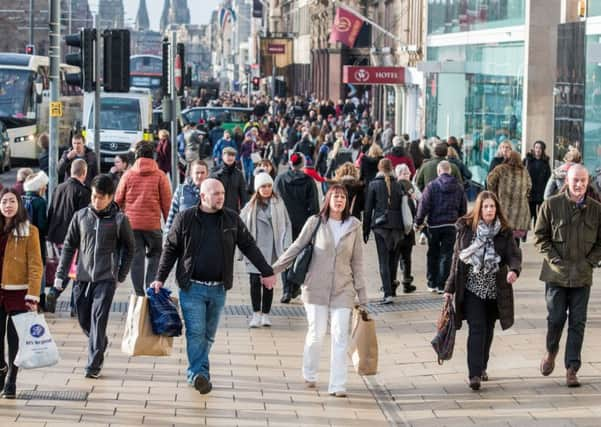UK economy slowdown worse than feared as sales fall
This article contains affiliate links. We may earn a small commission on items purchased through this article, but that does not affect our editorial judgement.


The Office for National Statistics (ONS) said gross domestic product (GDP) grew by 0.3 per cent in its initial estimate for the first quarter of 2017, down from 0.7 per cent in the fourth quarter of last year.
Economists had been expecting GDP growth to slow as consumers tightened their belts in the face of rising inflation, but they had pencilled in a growth figure of 0.4 per cent.
Advertisement
Hide AdAdvertisement
Hide Ad• READ MORE: Cost of living fears mount as inflation hits 2.3%
The ONS said the main driver behind the slowdown was a sharp decline in the dominant services sector, which saw its growth more than halved to 0.3 per cent, down from 0.8 per cent in the final three months of last year.
It added: “There were falls in several important consumer-focused industries, such as retail sales and accommodation; this was due in part to prices increasing more than spending.”
Nancy Curtin, chief investment officer at Close Brothers Asset Management, said: “Rising inflation and slow wage growth have dampened consumer demand and reduced retail spending, which were helping drive growth last year after Britain’s vote to leave the EU. On the other hand though, the increased attractiveness of sterling in the wake of the referendum has boosted manufacturing and international exports, making headway in rebalancing the UK economy.
“With the general election just around the corner and Brexit negotiations afoot, any dip in the economy risks bringing further caution and uncertainty to businesses, which has a knock-on effect when it comes to investment and employment. However the Chancellor, with better-than-expected Budget tax receipts in his pocket, has room for manoeuvre and should be able to pre-empt any further slowdown, which should help with business confidence.”